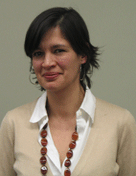Natasha Cabrera, Human Development
| When |
Apr 10, 2017
from 12:00 PM to 01:00 PM |
|---|---|
| Where | 1101 Morrill Hall |
| Contact Name | Jennifer Doiron |
| Contact Phone | 301-405-6403 |
| Add event to calendar |
|
About the Presentation
Using a sample of 735 two-parent families drawn from the FFCWS, we examined the direct and indirect associations between fathers’ permanent earnings during the early childhood and children’s cognitive and behavioral outcomes at ages 5 and 9 through parental investments, family processes, and children’s skills at age 3. We found that fathers’ earnings in the early years were significantly related to children’s language skills at age 5 but not to aggressive behavior or to any outcomes at age 9. The association between earnings and language skills at age 5 and math and reading at age 9 were mediated by cognitively stimulating materials and children’s language skills at age 5. The effect sizes are small and the mediating effects of fathers’ earnings on reading and math are only for children of the highest earning fathers. For two-parent families, policies to increase fathers’ earnings alone will have little impact on children’s development.
About the Speaker

Natasha Cabrera, PhD is a professor in the Department of Human Development and Quantitative Methodology, College of Education, at University of Maryland, College Park and a 2015 Russell Sage visiting fellow. She is co-investigator of the National Research Center on Hispanic Children & Families, co-leading the research area on healthy marriage and responsible fatherhood. Her esearch focuses on adaptive and maladaptive parenting, with a special focus on father involvement and children’s social development; ethnic and cultural variations in fathering and mothering behaviors; family processes in a social and cultural context; and the mechanisms that link early experiences to children’s school readiness
